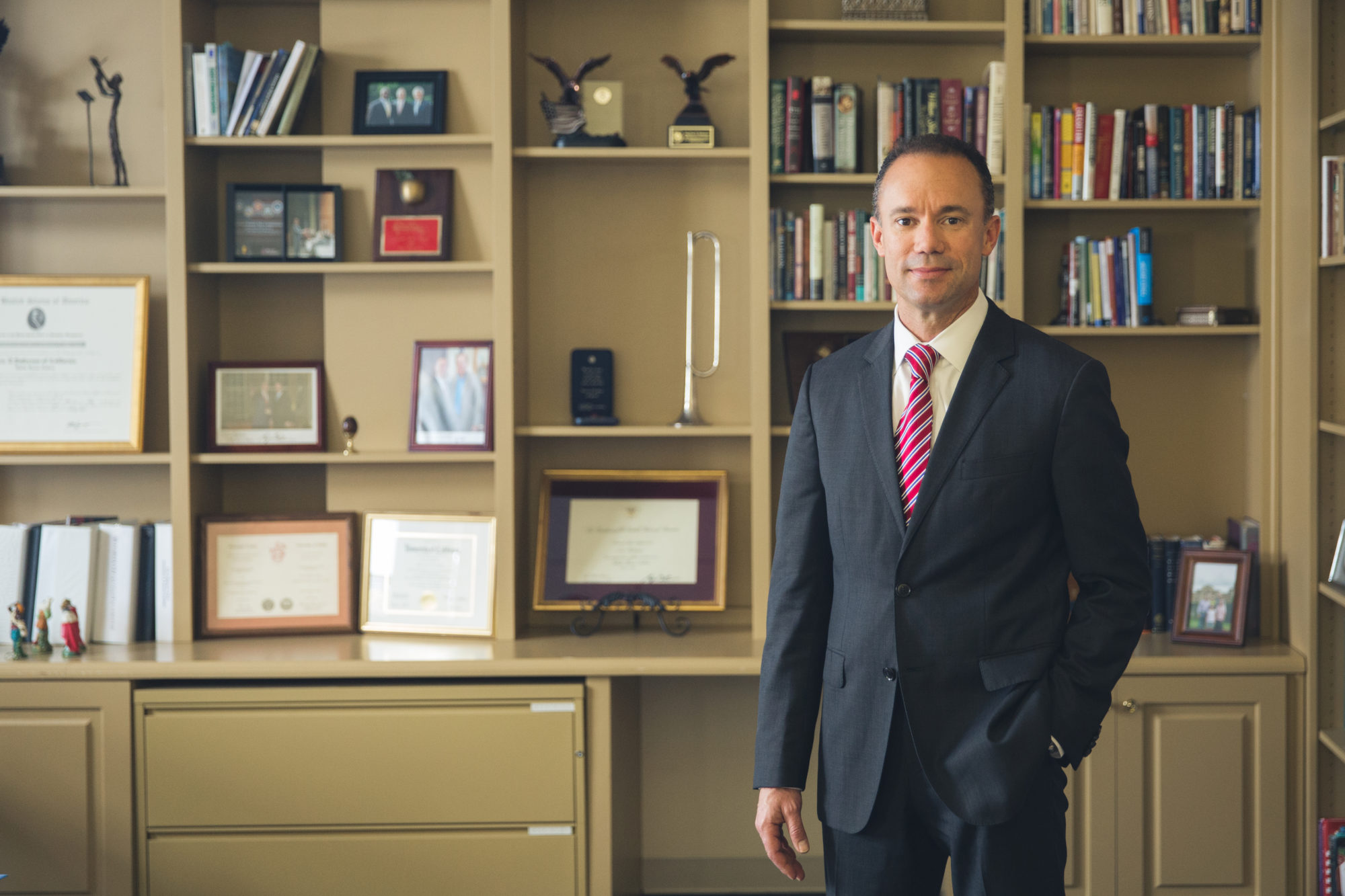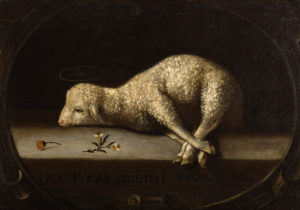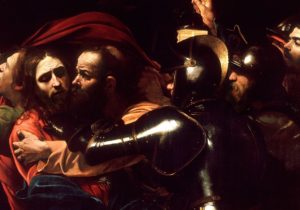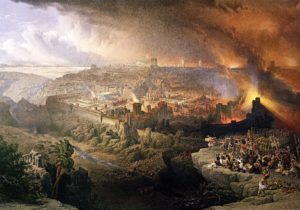When the Magi had gone, an angel of the Lord appeared to Joseph in a dream. “Get up,” he said, “take the child and his mother and escape to Egypt. Stay there until I tell you, for Herod is going to search for the child to kill him.” So he got up, took the child and his mother during the night and left for Egypt, where he stayed until the death of Herod… After Herod died, an angel of the Lord appeared in a dream to Joseph in Egypt and said, “Get up, take the child and his mother and go to the land of Israel, for those who were trying to take the child’s life are dead.”
Matthew 2:13-15, 19-21
Soon after the Magi visited and offered their gifts of gold, frankincense, and myrrh, Joseph was warned of impending catastrophe for his young family. King Herod, known for his efficient ruthlessness, had ascertained the general location of the Christ child and was preparing death squads to eliminate a potential rival to his throne. That Herod had the capacity to kill mercilessly was well-known: he had murdered his way to the Jewish throne and was responsible for the execution of many high-ranking Jews as well as his own wife Mariamne and some of his sons.
Joseph responded immediately, waking Mary, gathering their few belongings, and hastening into the night, bound for Egypt as directed by the angel. The night into which they vanished was both real and figurative. Herod was left in the dark, stymied in his effort to kill the babe. The Light of the World, the hope of humanity, had left Israel, as Joseph shielded the new baby from the world’s attention.
They were directed southward to Egypt, an entirely separate jurisdiction that had only recently been made part of the Roman Empire. Egypt has rich biblical connotations as a place of hope and succor. It was also historically a place of temptation for the Jews—a place where they might forget the Promised Land of their forefathers and the unique spiritual devotion to which they were called.
Many Old Testament figures found refuge in Egypt. Abram went there with his wife Sarai and left with a fortune. Abram later turned to an Egyptian servant girl in order to sire an heir. Decades later his grandson Jacob found relief from famine in Egypt and Jacob’s son Joseph rose to the prime minister’s position, saving Egypt and its people from seven years of deadly famine. Moses became a prince of Egypt when lost to his parents, and the Jewish nation thrived for four centuries in the incubator of Egypt prior to the events leading to the Exodus. Solomon cemented his grandest political alliance by marrying Pharaoh’s daughter and built his army around 12,000 of Egypt’s finest steeds. Later kings would side with Egypt in regional power politics, and Egypt became a haven for Jewish refugees fleeing Assyrians, Babylonians, and Seleucids over the centuries.
Thus, it was natural for Joseph and Mary to head to Egypt, and the most logical destination for them in Egypt was Alexandria. This city, founded by Alexander the Great in 332 BC, was known throughout the world for its love of learning, tolerance for different ideas and customs, and its multitude of schools and massive library. It was also well-known among Jews as the second city of Judaism, boasting a Jewish population larger than that of Jerusalem that exercised quasi-independent self-government in two of the city’s five districts. It was at Alexandria that the Septuagint, the Greek version of the Old Testament, was translated circa 300–200 BC and where many of Judaism’s great philosophers, most notably Philo, resided.
Nonetheless, Egypt was problematic because it was a tempting final destination rather than a mere way-stop. God’s plan was for Egypt to only be a temporary refuge for his people: Abram left and returned to Canaan; Jacob prophesied that his descendants would return to the Promised Land; and Moses fulfilled that by leading the Israelites out of Egypt. Centuries later, the Alexandria Diaspora felt so comfortable in Egypt that they built their own temple there. However, God never meant for Egypt to be his people’s final destination—their hope was to be in God and his plan. Egypt was only to be a temporary refuge in God’s plan.
Egypt was a place of material well-being, but not one of spiritual well-being. It was there that Abram lied and caused his wife to live under false and dangerous pretenses; it was there that Joseph’s star waxed only after it had waned; and the Egypt of Moses’ day was alluring enough that many Israelites longed to return there rather than face the unknown wilderness en route to the Promised Land. Solomon’s dalliance with Egypt epitomized spiritual compromise in the area of personal and public well-being. Following Nebuchadnezzar’s conquest of Jerusalem, Jeremiah warned the remnant of Jews left in Judah that God did not want them to go to Egypt—but naturally they disobeyed, supporting Egypt in its doomed encounter with Babylon at the Battle of Carchemish. Of course, this disobedience resulted in destruction and slavery for many.
This historical backdrop sets the stage for the temptations that Mary and Joseph may have faced in residing in Egypt. We do not know how long Mary and Joseph remained there; it could have been months, or it could have been several years. During this time they would have integrated into the local Jewish community, made friends and perhaps associated with distant relatives, participated in the local synagogue, and begun to operate a successful carpenter’s shop. It is possible that over time they became comfortable in Egypt, and that the thought of a major move back across the Negev to Judea or Galilee with Jesus and perhaps their other small children was unpalatable.
From a financial standpoint, it is entirely possible that Egypt provided them with a better opportunity for stability, security, and making a living than did the Palestinian backwater of the Roman Empire that was politically unstable, economically depressed, and ultimately convulsed by civil war and mass destruction a few decades later. In contrast to all this, Egypt appeared to be prosperous and secure. Moreover, Mary and Joseph may have even wondered if their son would repeat the Joseph story all over again, rising to prominence in Egypt and then saving all of Israel as a sort of Joseph- or Moses-type hero.
But their hope was in God and his will, not in their desires or plans.
Some time later, probably several years following the desperate pre-dawn escape to Egypt, the angel returned and bid Joseph to travel back to Israel. To his credit, Joseph obeyed once again, leaving the temporary material security enjoyed in Egypt.
Joseph and Mary’s expectations were rooted in submission to God’s plan: that was their basis for hope. We, too, can have hope in God, trusting that he will care for us and lead our families. We should be grateful for his blessing in times of plenty, but not mistake fleeting material profit, fame, pleasure, or worldly success for the ultimate spiritual purpose and meaning inherent in our service to Christ.








 Sponsor a student for Christianity & National Security 2024
Sponsor a student for Christianity & National Security 2024